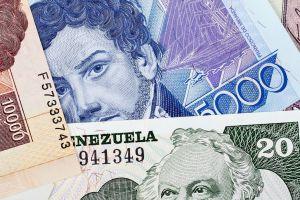Maduro OKs Petro-to-Fiat Trades, Will Provide Stores with Crypto Pay Tech
Venezuelan president Nicolás Maduro has authorized Petro-to-fiat trading, and says his government will provide the necessary technology to all business holders in the country who want to start accepting crypto pay.

Maduro stated that his move – effective as of October 23 – would allow the “three million” Venezuelans with Petro holdings to convert their tokens to fiat, including bolivars, per reports from Panorama and Correo del Orinoco.
The president also urged merchants and business holders to consider moving to cryptocurrency pay solutions, in a bid to revitalize the country’s economy.
He stated,
“If you have a good store, a good supermarket, or sell household appliances, join the cryptocurrency [pay] system, we will provide you with the technological means of doing so.”
Maduro went on to say that he would “surprise” Venezuelans “in the coming weeks” with new economic measures related to the digital economy and cryptocurrencies. Last week, he announced the government would begin handing out USD 3.6 million worth of Petro tokens to state authorities in bi-monthly handouts.
The Petro is the Venezuelan state’s own, oil-backed cryptocurrency. Although the United States has banned it, and threatened companies or countries dealing in the token with economic sanctions, Maduro claims that a number of international parties have already traded with Venezuelan companies in the Petro. However, he refused to name the companies in question in case Washington attempted to take retaliatory action on the firms.
Venezuela’s Petro chief recently spoke about the token at a blockchain event in Moscow, and Caracas remains keen on convincing Russia to trade in Petros or other cryptocurrencies.
But a number of international cryptocurrency companies appear reluctant to do business in Venezuela.
Cryptocurrency users in the country reported this week that British exchange CEX.IO has blocked Venezuelan customers from accessing its platform. Should a Venezuela-based user attempt to access the exchange’s site, a message reading “your country is currently unsupported” appears.




